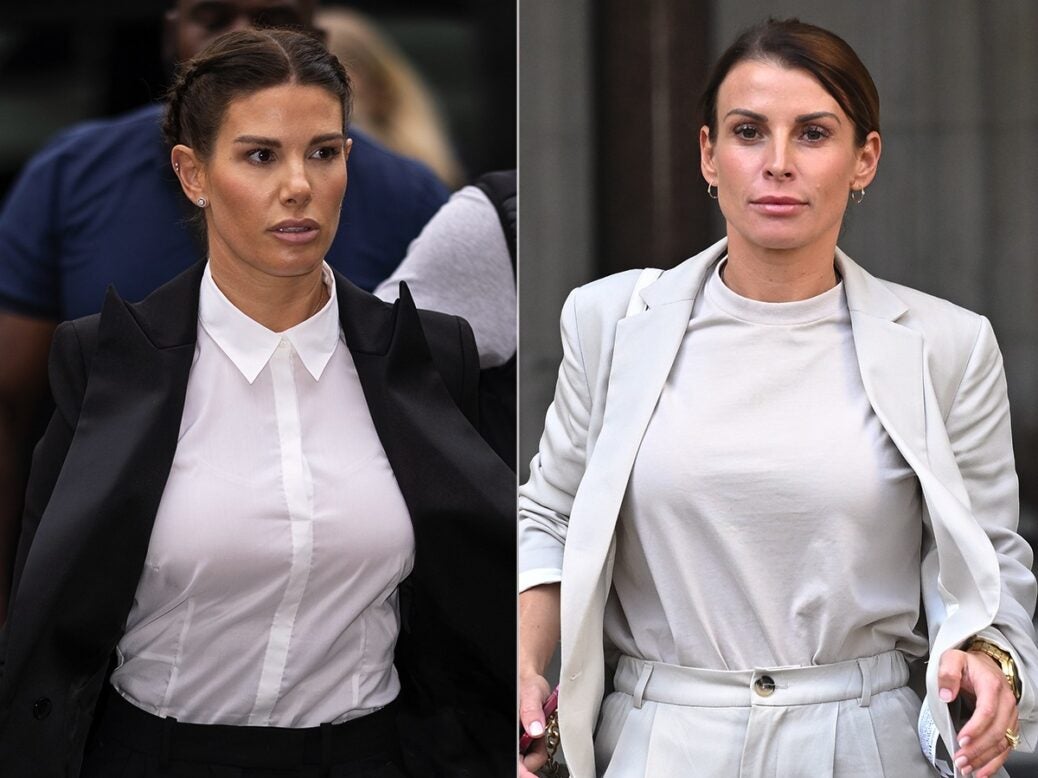
Against a lively news backdrop, privacy and reputation disputes were plentiful in 2022
From the ongoing phone-hacking fallout to the next turn in the Depp-Heard saga, celebrity disputes made headlines on both sides of the Atlantic – resulting in large settlements.
Meanwhile a High Court case revived longstanding concerns about the misuse of libel laws by the rich and powerful – including pro-Kremlin oligarchs – to intimidate their critics.
As we look ahead to 2023, Spear’s speaks to some of London’s leading reputation lawyers about the significance of these cases.
Vardy v Rooney
The old adage says that justice must be seen to be done. By that measure, the case of Vardy v Rooney must be a success – given it ranks as among the most ‘seen’ in years.
The dispute had long been tabloid dynamite, stretching back to 2019 – when Coleen Rooney (wife of the former England striker Wayne) first accused Rebekah Vardy of leaking her private information to the press.
It was Rooney’s ingenious use of social media to lay a trap for her adversary that earned the case its popular nickname: Wagatha Christie. For her part, Ms Vardy denied the allegations – attempting to sue for defamation.
When the case reached trial in July 2022, the public appetite remained steadfast. Dispatches from the cross examination soon filled newspaper column inches, even inspiring a West End play.
> Wagatha Christie’s lessons for the super-rich
‘This really was a blockbuster case, living up to the maxim that reputation is everything,’ says Louise Prince, a senior associate with media firm Harbottle & Lewis.
‘It’s also a reminder that litigation can be extremely expensive, and that claimants therefore need to think carefully before they try to clear their name but for the victor the rewards are worth it.
In the end, the judge found against the claimant, holding that the allegations were ‘substantially true’ and ordering Ms Vardy to pay 90 per cent of the defendant’s legal costs.
“Many will say that Ms Vardy should never have brought this case to trial, and that she had a disaster on her hands of her own making,’ says Gideon Benaim, a reputation lawyer from Simkins.
‘However, sometimes people feel so strongly about what has been said about them that, even after being advised of all of the risks, they want to have their day in court.’
Yet for all the personal intrigue, the case also shone valuable light on the nature of defamation in the social media age.
Rooney’s lawyer David Sherborne reads out a WhatsApp sent by Vardy, saying “Poor Coleen” followed by “laughing emojis”.
Vardy disputes this characterisation: “I don’t know whether they’re laughing emojis.”
Sherborne replies, somewhat dismissively: “OK, crying with laughter”.
😭— Jim Waterson (@jimwaterson) May 12, 2022
In one exchange, the parties’ respective lawyers disputed the precise meaning of emojis used in private messages between Vardy and her agent.
While such questions may seem novel now, they are likely to become a bigger feature of reputation cases in future – raising more questions for courts.
ENRC v Burgis & Harper Collins
In the spring of 2022, the High Court dismissed a defamation suit against a Financial Times journalist on the grounds that the claimant – a corporate entity – lacked valid grounds for such a claim.
The claimant – a Kazakhstan-based entity called Eurasian Natural Resources Corporation – had sought to sue the author Tom Burgis and his publishers on the grounds that his book Kleptopia had undermined the company’s reputation by accusing it of being responsible for a number of unsolved murders.
Mr Justice Nicklin was not convinced. In a forthright judgement, he ruled that – as only individuals can commit the crime of murder – it was implausible that the relevant passages could be read as targeting a corporate entity.
For all its swift resolution, though, the Burgis case may well have a longer-term significance. For anti-corruption campaigners, ENRC’s actions are another example of a so-called SLAPP – a nuisance lawsuit intended to discourage journalists (and their publishers) from legitimate investigation.
Following the Russian invasion of Ukraine, the issue has been thrust back into the political spotlight. The Conservative government has since promised tough new measures to end the abuse of privacy law by oligarchs to silence their critics.
How such reforms will balance the rights of wronged parties to pursue legitimate defamation cases remains to be seen.
James Dyson & Channel 4

In October, the High Court dismissed a claim from the billionaire entrepreneur James Dyson against the broadcaster Channel 4.
In his judgement, Mr Justice Nicklin stated that only a ‘hopelessly naive’ viewer would regard the material in question as defamatory towards either Mr Dyson or his company.
Mr Dyson had launched his action against the broadcaster following a critical news report on the ‘inhuman’ conditions in a factory owned and operated by one of his company’s Malaysian suppliers.
Yet the court held that, while the item in question mentioned Dyson, it was unreasonable to claim that Channel 4 had sought to blame the manufacturer (or Sir James Dyson) for the conditions in the Malaysian factory.
‘No ordinary reasonable viewer could conclude that [Dyson] was being in any way criticised,’ said Justice Nicklin.
Only a naive viewer, he added, would expect a chief executive to have responsibility for conditions in a supplier’s factories – and thus the case should be dismissed.
Phone hacking settlements
In anticipation of two upcoming trials, one next year against Mirror Group Newspapers and one at the beginning of 2024 against New Group Newspapers, the fallout from the phone hacking scandal continues to cause problems – not to mention expense lines – for Britain’s tabloids.
The latest name to reach a settlement was the former royal butler Paul Burrell, whose lawyers announced in December that they had reached a settlement with the publishers of the Daily Mirror, Sunday Mirror and The People concerning phone hacking allegations from the early 2000s.
‘It might seem odd to observers that phone hacking cases are still being brought, but the reality is that many potential claimants, who have legitimate claims, are only now finding out they are a victim ‘ says Louise Prince from Harbottle & Lewis.
While Burrell’s case is just one of many that remain outstanding, it provides a reminder of what could be at stake over the next year or so when both Mirror Group Newspapers and News Group Newspapers (publishers of The Sun and The News of the World) are set to face trials.
Depp v Heard (US)

Two years after losing a related libel case in London against The Sun, the Pirates of the Caribbean star Johnny Depp emerged victorious in a case against Amber Heard – with a Virginia jury accepting that her claims of domestic violence amounted to defamation.
Following a televised trial, the jury unanimously found that Heard had defamed Depp in a Washington Post op-ed. As a result, it awarded the claimant $10 million in compensatory damages, and a further $5 million in punitive damages.
‘The outcome shows the potential impact of having a jury trial – as is typically the case in the US – rather than having the case heard by a judge alone which is the usual position in the UK unless the court orders otherwise,’ says Louise Prince from Harbottle & Lewis.
‘The substance of the case was broadly the same as Depp’s case against The Sun, but this time he was able to persuade the jury to believe him, which is why he prevailed in his defamation claim.’
In response to a countersuit from Heard, the jury also found that Depp had defamed his ex-wife – namely through statements made in the media via his former attorney, and he was ordered to pay $2 million in compensatory damages.
‘One can’t help but form the view that the trial, which was in front of a jury with live TV coverage and massive unrestricted online “debate”, reduced the case to a form of prurient entertainment,’ says Gideon Benaim from Simkins.
‘We will likely never know what impact the publicity circus had on the outcome of the case.’
Murdoch v Crikey (Australia)
In Australia, a blockbuster defamation battle has pitted the world’s most powerful media scion against an independent media outlet with a history of muck-racking.
Media executive Lachlan Murdoch (son of Rupert and current co-chairman of News Corp) is seeking redress after the publication of an article on Crikey – an independent Australian blog – which he says has unjustly damaged his reputation.
Mr Murdoch’s lawyers claim that the article – a critical op-ed against Donald Trump’s efforts to overturn the 2020 election – alleges an illegal conspiracy between Fox News and the Murdoch family to subvert the US constitution.
While the full trial is set to begin in March, pretrial litigation has already been lively – as both sides scramble to define the terms of the case.
It will no doubt be one to watch in 2023.
Main image: Getty
More from Spear’s:
The high-profile high-net-worth divorces of 2022
A year in billionaires: Sanctions, sell-offs and submarines
Britain’s best luxury cars of the year






